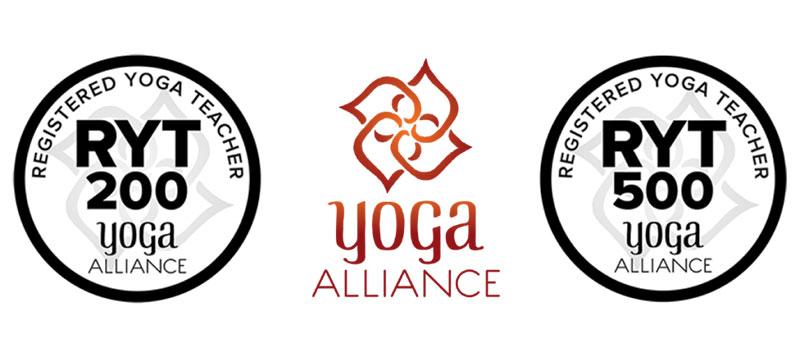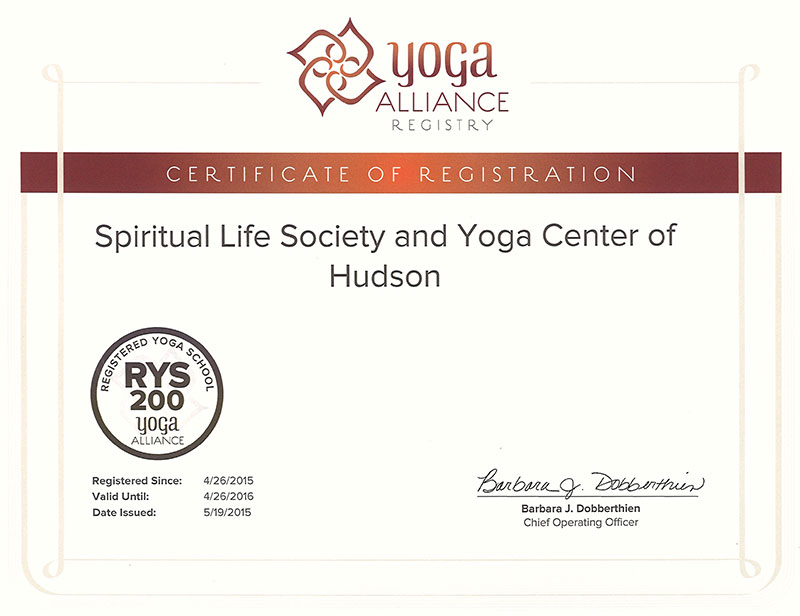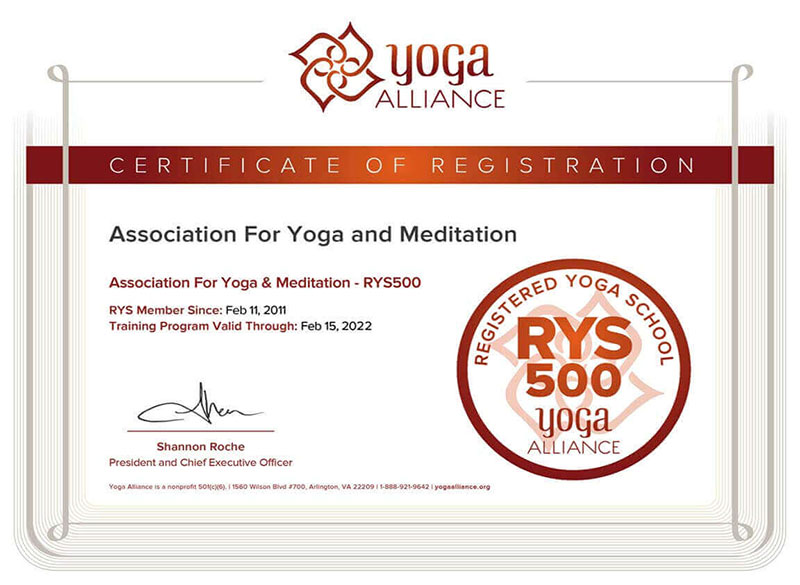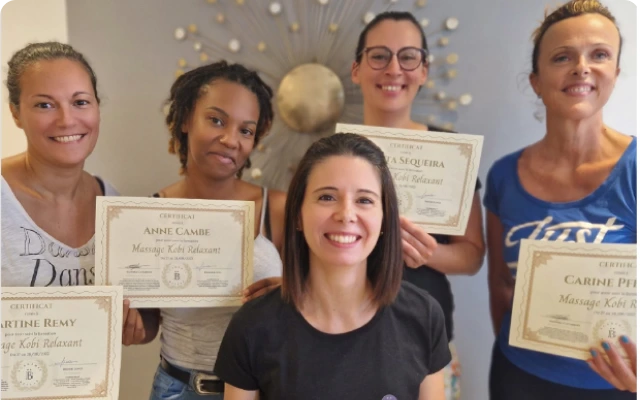If you are a yoga enthusiast and you want to make money out of yoga practice, have you ever wondered how to become a yoga teacher? Can you teach yoga without certification?
In the United States, there is no existing federal law that governs the practice of teaching yoga and its professional qualifications. However, there is an institutionalized way to become a certified yoga teacher, although unofficial, and that is the RYT 200 certification facilitated by the Yoga Alliance.
The RYT 200 currently holds the gold standard for yoga teacher certification in the United States. But do you really need this? Consider the following information if you are planning to become a yoga teacher.
What is the Yoga Alliance?
The Yoga Alliance is a non-profit association established in 1999 that aims to represent the yoga community and set the standards for teaching yoga. Yoga Alliance has its own registry of schools and teachers who are accredited via Yoga Alliance’s certification programs such as the RYT 200 and RYT 500.
The registration for the Yoga Alliance is completely voluntary. Although the Yoga Alliance aims to represent the yoga community, not everyone wants the idea of having a governing body that regulates a supposedly self-development program.
Even so, Yoga Alliance continues to grow its influence and it is slowly being recognized for its certification programs. For yoga instructors to become registered yoga teachers certified by the Yoga Alliance, they must complete a series of training on the following areas for a specific number of hours:
- Techniques, training, and practice;
- Teaching methodology of yoga;
- Anatomy of human body and physiology;
- Philosophy of yoga, its ethics, and lifestyle;
- Practicum
However, a certification from the Yoga Alliance is not an official prerequisite to become a yoga teacher. Clients don’t even specifically look for a Yoga Alliance certified yoga teacher. Some of them don’t even know about it, hence, there is an existing discussion regarding the value of a Yoga Alliance registration.
One of the main criticisms against the Yoga Alliance is that the organization has a rather weak educational framework and its modernized standards are voidable which is completely different from what the organization claims to have. Another argument is that yoga is a spiritual practice and ascetic discipline that does not need to be regulated and commercialized further at all. Many yoga enthusiasts believe that regulating yoga limits the number of great experiences you’d get from it.
However, there are also people who support the Yoga Alliance. These people emphasize the importance of having a non-government regulating body in teaching yoga.
Yoga Teacher Certifications from the Yoga Alliance

Yoga Alliance offers yoga teacher certification programs and grants the Registered Yoga Teacher (RYT) credential to those who completed a series of training with a specific number of hours. There are two types of yoga teacher training credentials awarded by the Yoga Alliance, the RYT-200 and RYT-500.
RYT-200 is awarded to those who completed a 200-hour teacher training course and it is also the minimum requirement for yoga teachers to formally start teaching yoga, whereas the RYT-500 is earned by those who completed a 500-hour yoga teacher training and it has a different set of requirements.
The 200-hour yoga teacher training teaches the basics and fundamentals of teaching yoga. Once completed, yoga teachers can proceed to a 300-hour teacher training program wherein they learn advanced levels of instruction, teaching style, and yoga techniques. To earn the 500-hour yoga teacher certification, yoga teachers can either combine their 200- and 300-hour training credentials or finish a 500-hour yoga teacher training. They must also complete 100 hours of teaching experience as an additional requirement.

There are many yoga schools in the United States that offer 200-hour yoga teacher training programs, but not all of them have the registered yoga teacher training school credential. To become a Registered Yoga School (RYS) approved by the Yoga Alliance USA, the yoga studio has to submit its curriculum and other requirements to the Yoga Alliance which will undergo a six-week academic style peer-review process.
Can I Teach Yoga Without a Certification from the Yoga Alliance?

Is it possible to teach yoga without a certification from the Yoga Alliance? The answer is, yes, definitely. As mentioned, there is no existing federal law in the United States that regulates the practice of teaching yoga. This means it is not mandatory to get a license or any certification to become a yoga instructor.
Teaching yoga without any certifications is acceptable, however, the requirements are sometimes different depending on where you decide to teach. Some yoga studios in the U.S. require their instructors to have at least an RYT-200 certification. The rationale behind implementing such a requirement is to set standards and regulations in case of professional liability issues.
Don’t let the certifications make you feel burdened or get discouraged if you don’t have any certification or license. You can still become a yoga instructor and make money out of it. There are lots of ways to do it other than getting a yoga certification. Your teaching skills and work experience alone are already valid.
As a matter of fact, some of the well-established yoga teachers in the U.S. don’t have a certification yet they have their own yoga studio and online video channel, conduct wellness workshops, and have built a small community where they share their own yoga practice. You will find that their personal branding attracts more clients than having a certification. Moreover, a lot of yoga students are not familiar with RYT-200 and RYT-500.

Yoga teachers can also get yoga teacher certification from other training institutions aside from Yoga Alliance especially for those who want to have a specialization like yoga for kids, ashtanga yoga, Bikram yoga, restorative yoga, and more. They could also study other teaching skills and areas of yoga. They just have to identify what kind of yoga they wish to teach and where.
Disadvantages of Teaching Yoga without Certification

If you are still uncertain whether to take yoga teacher training or not, think of it this way. Would you trust an unlicensed dentist to extract your tooth? Naturally, you would not. So, would you trust someone without a proper credential to teach you yoga? Some people are okay with it, while some people prefer having a certified yoga teacher on board.
Earning a certification is also earning respect from your students. This means passing all of the modernized standards and rules by the Yoga Alliance. Having certification provides you with more authority and respect. Without a certification, students might not take your classes seriously.
As mentioned, some gyms and yoga studios ask for a certification from yoga teachers as part of their requirements. Some yoga studios look for those who are registered with the Yoga Alliance and those who have completed their series of training. If you don’t possess a credential from the Yoga Alliance, they might require you to conduct a demo class for further assessment.
Get more bookings with the right tool for the job
Staying organized has never been easier.
You can now manage your business and grow your brand with a single, powerful WordPress booking plugin that keeps all of your appointments in line, your clients organized and your business booming.
Amelia is perfect for business owners who need to streamline their booking experience both for their staff and their clients.
Amelia handles everything for you, even sending automated email or SMS reminders to your clients. No-shows? Not anymore!
The Amelia WordPress booking plugin adapts to different industries for a blissful online booking experience and employee management.
Want to know more? Check out Amelia’s awesome features to see what you are missing.
FAQs about teaching yoga without certification
1. Is it legal to teach yoga without certification?
Although it is allowed, it is not advised to teach yoga without a certification. Most places do not have specific legislation requiring yoga instructors to be certified or licensed in order to teach. Without certification, you might not be able to get insurance, and if something goes wrong in class, you might run into legal problems.
2. Can I teach yoga without any formal training or certification?
Although it is not advised, you can teach yoga without any official education or certification. Without the correct instruction, you might not be aware of the advantages and disadvantages of various poses, which could cause pain or injury to your students.
3. Are there any risks involved in teaching yoga without certification?
Yes, teaching yoga without a certification carries some hazards. Without the correct instruction, you might not be aware of the advantages and disadvantages of various poses, which could cause pain or injury to your students. Furthermore, it’s possible that you won’t be able to get insurance, which could make you personally accountable in the event that something goes wrong.
4. Will I be able to find work as a yoga instructor without certification?
Without certification, it could be more difficult to find work as a yoga instructor. Yoga instructors are frequently required to have some sort of certification or training from gyms, studios, and other employers. You can have a harder time finding employment without it.
5. Is it ethical to teach yoga without certification?
Although it is not advised, teaching yoga without certification is not necessarily immoral. Without the correct instruction, you might not be aware of the advantages and disadvantages of various poses, which could cause pain or injury to your students. Furthermore, it’s possible that you won’t be able to get insurance, which could make you personally accountable in the event that something goes wrong.
6. How can I improve my teaching skills without going through a certification program?
You can enhance your teaching abilities in a variety of ways without enrolling in a certification program. You can study books and articles about yoga, go to workshops, classes, and retreats to learn from knowledgeable instructors and practice yoga on your own frequently.
7. Can I get insurance to teach yoga without certification?
If you want to teach yoga without certification, it could be difficult to get insurance. Yoga instructors must possess a certain degree of certification or training in order to be covered by several insurance companies.
8. What are some alternative ways to become qualified to teach yoga without certification?
Without certification, there is no other way to qualify to teach yoga. Programs for certification or training offer the necessary information and abilities for safe and efficient yoga instruction. However, through workshops, classes, and mentorship programs, there are lots of chances to develop as a yoga teacher.
9. What are the consequences of teaching yoga without certification?
Yoga instruction without certification may result in legal problems, individual culpability, and student injuries. Without the right instruction, you might not be aware of the advantages and disadvantages of various poses, which could cause pain or injury to your students.
10. Are there any organizations that recognize or support yoga teachers without certification?
There are no organizations that formally support or recognize uncertified yoga instructors. Regardless of certification status, there are several communities and networks of yoga teachers who help each other grow and develop.
Ending thoughts on teaching yoga without certification
The ultimate answer is, yes, you can teach yoga without a certification. Yoga teacher certification is not required, however, it is advisable. It would be wise to check the advantages and disadvantages of being a registered teacher.
Being a certified yoga teacher has its benefits in terms of career opportunities and development. It enhances credibility as a professional, enables demonstration of commitment to certain industry standards, and it creates better career opportunities such as promotion, pay increase, and a bigger client base.
Still, remember that yoga teacher certification is not compulsory. A lot of well-established yoga instructors are not members of any organizations such as the Yoga Alliance. If you have the passion, skills, and knowledge to teach yoga, then definitely, you can hold your own yoga classes and students.
If you enjoyed reading this article on teaching yoga without certification, you should check out this one with yoga business names.
We also wrote about other yoga-related subjects like starting a career in yoga, yoga colors to use in the studio, yoga franchises, yoga studio software, yoga studio owner salary (curious?), and yoga marketing ideas you could use
We also have articles on yoga websites, creating a yoga studio business plan, how much to charge for a yoga class, and how to start a yoga business.



